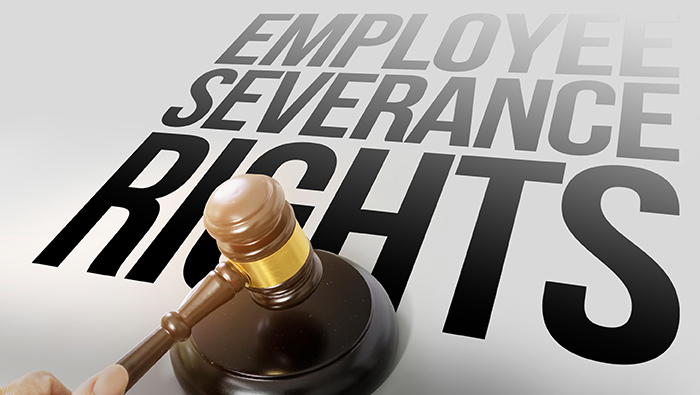Recently, the National Labor Relations Board (NLRB) ruled that employers may not offer employees severance agreements that require them to broadly waive their employee rights under the National Labor Relations Act (NLRA). The NLRB reversed its earlier 2020 decision in Baylor University Medical Center and IGT d/b/a International Game Technology, which had broken from prior precedent, and previously found such severance agreements legal. The NLRB protects the rights of private sector employees, under the NLRA, to engage in concerted activity to improve wages and working conditions. Last year, the NLRB General Counsel issued a memo on protecting employees from electronic surveillance while exercising their rights.
Background of the Case
In 2020, following the onset of the COVID-19 pandemic, the hospital employer temporarily furloughed 11 nonessential outpatient services union employees. The company offered the furloughed employees severance agreements that prohibited them from making statements that could disparage the employer. Additionally, the agreements barred the employees from disclosing the terms of the agreement itself. The employer did not give the union notice of the furlough or severance agreement. Furthermore, if an employee violated the non-disparagement and nondisclosure provisions of the agreement, the employer could seek injunctive relief in court. Under the agreement, the employee would be liable for actual damages and attorney fees.
Employee Rights Under the NLRA
Under the NLRA, both union and non-union employees have the right to engage in concerted activity whereby two or more employees act for their mutual aid regarding the terms and conditions of their employment. Examples of concerted activity include:
- talking about wages and benefits;
- petitioning for better hours;
- concerted refusal to work amidst unmitigated workplace safety hazards; and
- talking with the employer, government agency, or the media about problems in the workplace.
Under Section 7 of the NLRA, employers may not interfere with, restrain, or coerce employees in the exercise of their rights under the NLRA. For example, employers may not coerce or threaten employees with adverse consequences because of their protected, concerted activities.
The NLRB’s Decision on Severance Agreements
In its 2020 decision, the NLRB found that similar severance agreements were not unlawful themselves. The NLRB had held that because the agreement was voluntary, did not affect pay or benefits, and was not coercive, its non-disparagement provision did not interfere with the employees’ rights under the NLRA. This month’s decision in McLaren Macomb and Local 40 RN Staff Council, Office and Professional Employees, International Union reversed the previous decision, returning to longstanding precedent. In brief, the NLRB ruled that offering employees severance agreements that require them to broadly surrender rights to engage in concerted activity under the NLRA is illegal. According to the NLRB, the offer itself is an attempt to deter employees from engaging in concerted activity. Specifically, this applies in a context in which the employees felt that they must surrender their rights in order to receive benefits under the agreement.

